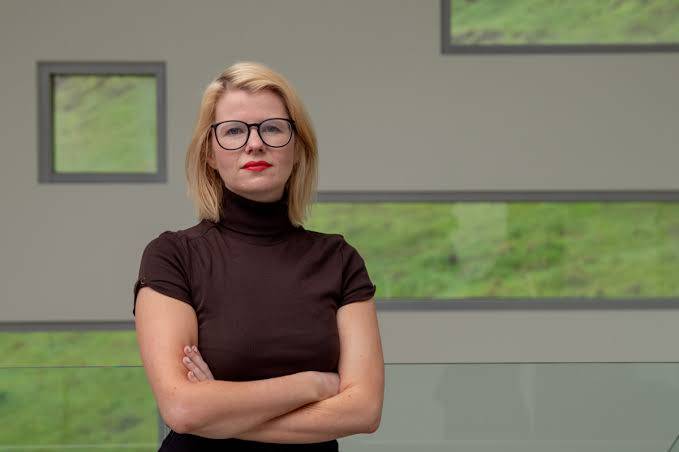Sinéad Griffin is an Irish physicist working at Lawrence Berkeley National Laboratory in California on condensed matter physics and materials science. She became a science and mainstream superstar within the last year for her research on room-temperature superconductors. Superconductivity is one of the most important fields of modern scientific research. It refers to the ability of certain materials to conduct an electrical current without any resistance, meaning that no energy is lost through heat. Superconductors have been known about for more than 100 years, but previous ones have worked only at extremely low or very high pressures. The holy grail, and a world-changing breakthrough, would be to make a superconductor that works at room temperature. It would be a revolutionary solution to the energy crisis.
It would enable the creation of magnetically levitating trains. And it would be a major breakthrough for quan– tum computing. Griffin’s research was the first to refute the claim that a South Korean lab had created the world’s first. Using a material called LK-99, the scientists pro- posed its room-temperature superconductivity – though when scientists rushed to replicate it, they didn’t find the same result. What Griffin did was different; instead of replicating the experiment, she tried to see if it was pos- sible through theory alone. Her research proposed that LK-99 did have a theoretical strangeness to it, which could allow it to be a superconductor. In a world where such experiments are extremely difficult and expensive, Griffin’s work cut down the number of iterations needed to find superconductivity at room temperature from bil– lions to tens. In doing so, she made a big leap forward in how scientists understand the subject. In a field crowded with Nobel prizes and multi-million dollar labs in the US and China, Griffin is an agent of change, and a home- grown voice pushing that conversation forward.
THE STEM AWARD
 BACK
BACK

